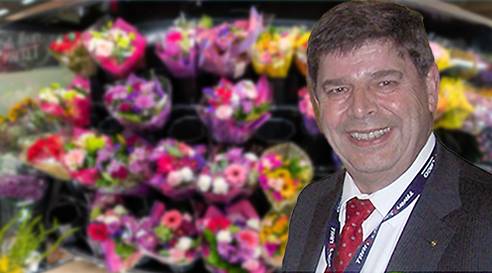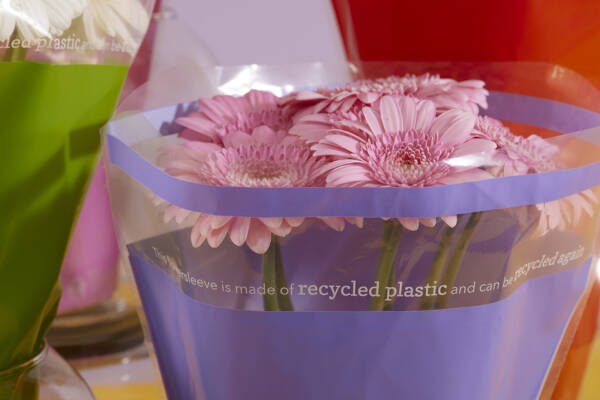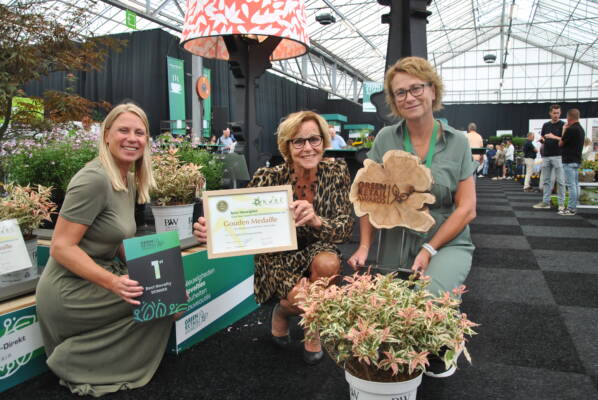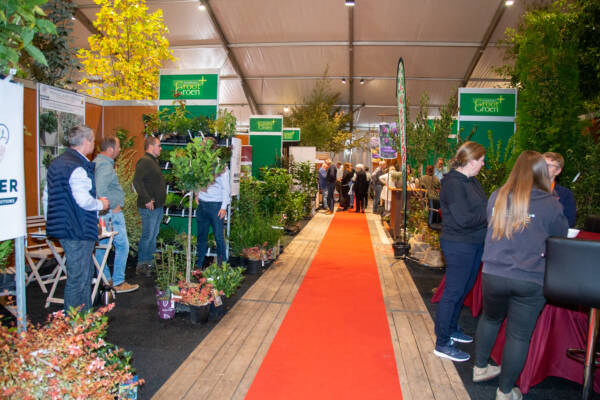In this second of a two-part column from FloraCulture International magazine, industry veteran Jaap Kras discusses how vertical integration will reshape our industry and what this means for the future role of wholesale. He also discusses the superpower of supermarket flowers next to the knowledgeable and passionate retail florist.
“When in Europe, Aldi, Migros and Coop and later all-important supermarket chains started to sell flowers, tulips and relatively cheap bouquets, our industry feared the superpower of the supermarket, and florists were afraid to lose jobs.
However, today supermarket floral sales in Europe have stabilised. More than 50 per cent of flowers and plants sold to the consumers go through other channels: florists, garden centres, street vendors, and street markets. The florists have maintained their position in the market because they are not only sellers but also producers and produce tailormade final products for funerals, weddings or other specific festivities. The florist adds value to the final product.
It’s here where the frequently underestimated theory of decoupling comes in. At what stage in the supply chain does the decoupling happen to customer orders?
As for the many bulk products sold in supermarkets and regular shops, the customer can only choose from the products that the supermarket offers. That’s what we call: decoupling at the retail level. But if you are rich enough to buy an aeroplane, you go directly to Boeing or Airbus to order your tailormade aircraft. That is what we call: decoupling at the producer’s level.
In the USA, this situation is different for all kinds of reasons. Logistics are much more critical in a vast country such as the USA. Local production is expensive, and most flowers are imported from Colombia and Ecuador; as such, customers can only choose what is offered by the retailer. The supermarket market share of flower sales in the USA goes up to 80 per cent.
And what is happening today? All non-perishable and more and more also perishable products are offered on the internet and can be bought by the consumer directly from the wholesaler, bouquet maker or even producer.
And finally, after many decades, the internet forces supermarkets to reinvent themselves. How can we stay attractive for consumers who also have an alternative: sourcing goods directly and having them at their doorstep when they prefer and where they desire?
I expect supermarkets to increasingly try to escape from this competition by selling more fresh perishable products. But there will always be a place for specialists selling fish and ornamental products where skilled staff are not available in supermarkets. Perhaps this means that shopping malls and shopping centres are slowly moving towards the end of their lifecycle.
Still, with a market share of nearly 50 per cent, the power of the supermarkets is enormous. Fortunately, bouquet makers continue to play a primary role in adding value between growing flowers and a saleable product. Can the supermarkets do it themselves? Yes, but they don’t because they lack the necessary product knowledge. And why should they if they can now choose from a range of independent bouquet factories? Here’s where the shoe pinches.
The bouquet makers have to give the supermarket a price in advance. Way before the flowers and plants arrive on the market. Prices vary daily, so a supplier may have to sell its flowers at a lower price than previously agreed. In this scenario, the bouquet maker could, and supermarkets will try to crawl under; when the prices are much lower.
Happily, professional bouquet makers stick to agreements. But what do supermarkets do? If the daily prices are much higher, they force their supplying bouquet makers to deliver more flowers than first agreed upon and force them to sell the flowers for the same earlier deliberated lower price.
If the bouquet maker refuses and wishes to stick to the previously agreed amount of flowers and nothing more, the supermarket says ok, quickly adding that in such case, they will no longer buy flowers from them.
In such a situation, the bouquet maker will only sell a part (to cover his costs) of his expected yield in the hope or expectation that the price for his tulip or other flowers will be higher on the free market. The bouquet maker only purchases part of his sold flowers in the hope and expectation that the price on the free market is lower at the moment of selling.
However, there are exceptions to the rule. Some supermarket chains understand these risks and problems and help the bouquet maker, who made enormous losses on his contracts, by compensating him in future more profitable agreements later.
Still, this remains a precarious business, with annual margins for bouquet makers not more than two per cent. People from outside our industry rightly ask us why we should continue to work in an industry with such high risks and low-profit margins.”
Read more about the superpower of supermarket flowers in High risks and low-profit margins (1).





























